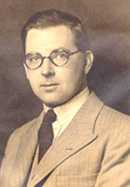Rossell Hope Robbins
Born
in Cheshire, The United Kingdom
July 22, 1912

|
The Encyclopedia of Witchcraft & Demonology
—
published
1959
—
38 editions
|
|

|
Witchcraft: An Introduction to the Literature of Witchcraft
—
published
1978
|
|

|
The T. S. Eliot Myth
—
published
1951
|
|

|
Secular Lyrics of the Xivth and Xvth Centuries
|
|

|
Chaucer and Middle English Studies in Honour of Rossell Hope Robbins
by
—
published
1975
—
6 editions
|
|
![Chaucer at Albany: [Essays]...](https://i.gr-assets.com/images/S/compressed.photo.goodreads.com/nophoto/book/111x148._SX50_.png)
|
Chaucer at Albany: [Essays] (Middle English Texts & Contexts, 2)
by
—
published
1976
|
|

|
Index of Middle English Verse
|
|

|
Supplement to the Index of Middle English Verse: Carleton Brown and Rossell Hope Robbins
by
—
published
2014
—
3 editions
|
|

|
The Hundred Tales = Les Cent Nouvelles Nouvelles
|
|

|
The T.S. Eliot Myth
|
|
“The words witch and witchcraft, in everyday usage for over a thousand years, have undergone several changes of meaning; and today witchcraft, having reverted to its original connotation of magic and sorcery, does not convey the precise and limited definition it once had during the sixteenth and seventeenth centuries. If witchcraft had never meant anything more than the craft of "an old, weather-beaten crone..." Europe would not have suffered, for three centuries from 1450 to 1750, the shocking nightmare, the foulest crime and the deepest shame of western civilization, the blackout of everything that homo sapiens, the reasoning man, has ever upheld. This book is about that shame...degradation stifled decency, the filthiest passions masqueraded under the cover of religion, and man's intellect was subverted to condone bestialities that even Swift's Yahoos would blush.
Never were so many wrong, so long...”
― The Encyclopedia of Witchcraft & Demonology
Never were so many wrong, so long...”
― The Encyclopedia of Witchcraft & Demonology
“Throughout these centuries, those who should, by their birth, training, and position, have been the conscience of the world, accepted the delusion and promoted it. Such men not only appealed to the emotions of religion, but perverted the entire structure of logic and reason. Everything was sacrificed to a preconceived prejudice. The logic of the Demonologists, all highly educated men, leaders in their own disciplines, is the most terrifying feature of witchcraft. Because of their turning rational thinking on its head--far more than the most foul act of a torturer or witch judge--the centuries of the witchcraft mania may be called the centuries of uncivilization.”
― The Encyclopedia of Witchcraft & Demonology
― The Encyclopedia of Witchcraft & Demonology
Topics Mentioning This Author
| topics | posts | views | last activity | |
|---|---|---|---|---|
| Heathens, Pagans ...: The European Witchcraft Trials | 51 | 70 | Nov 16, 2013 03:21PM | |
| Heathens, Pagans ...: Stalking the Goddess | 74 | 66 | Feb 03, 2014 01:00PM |
Is this you? Let us know. If not, help out and invite Rossell to Goodreads.












